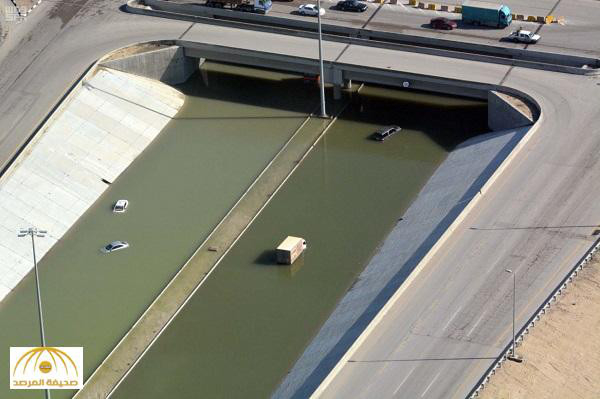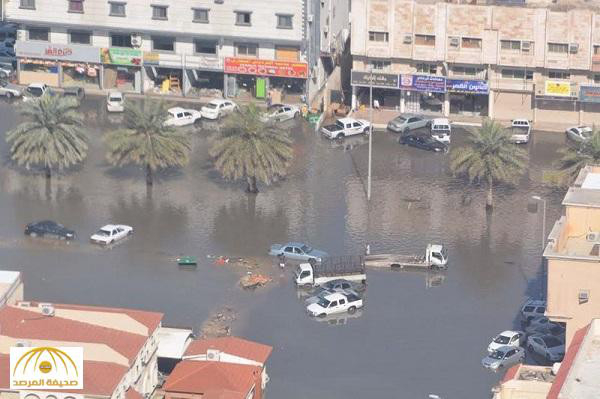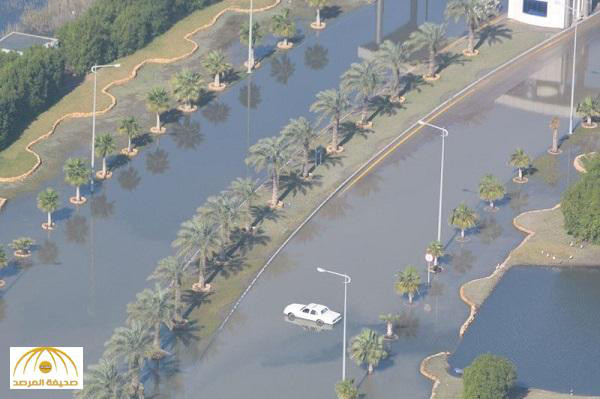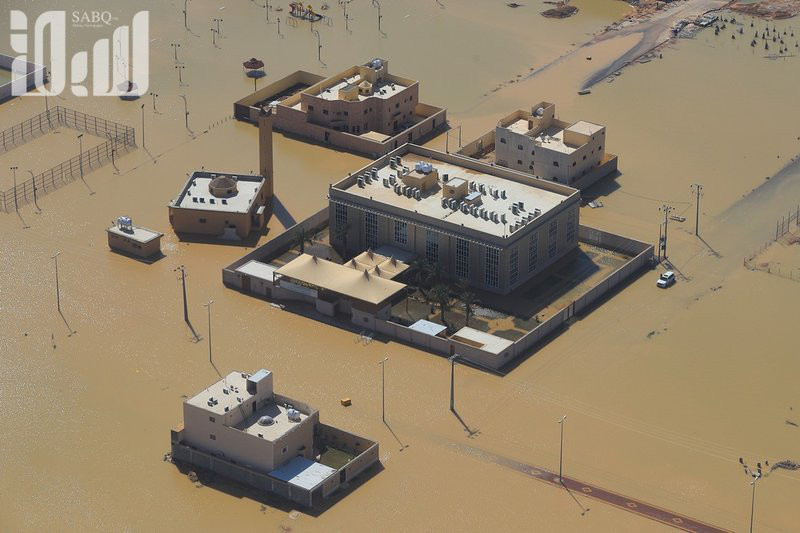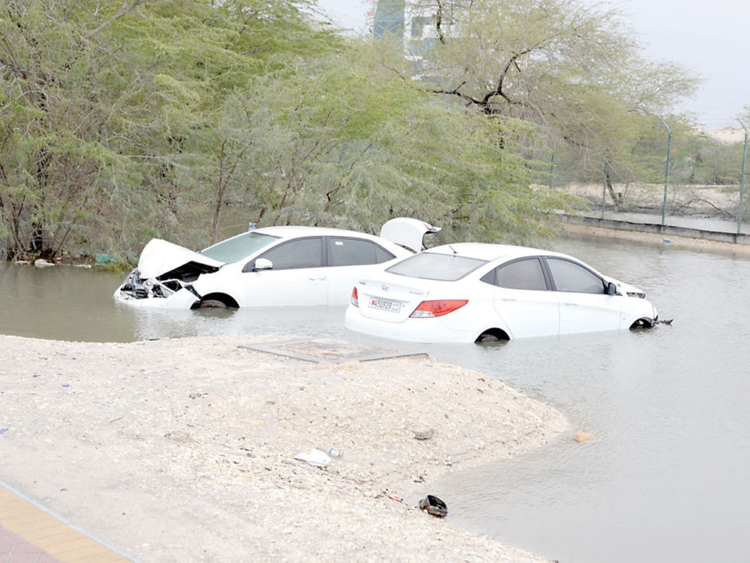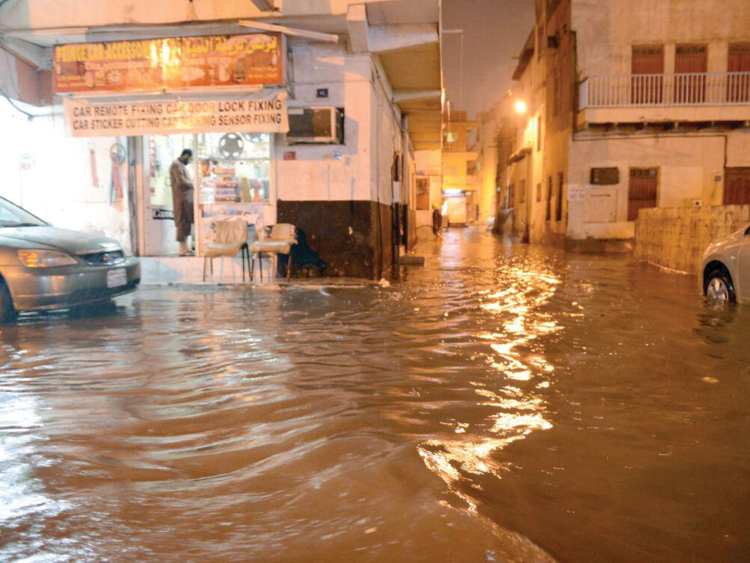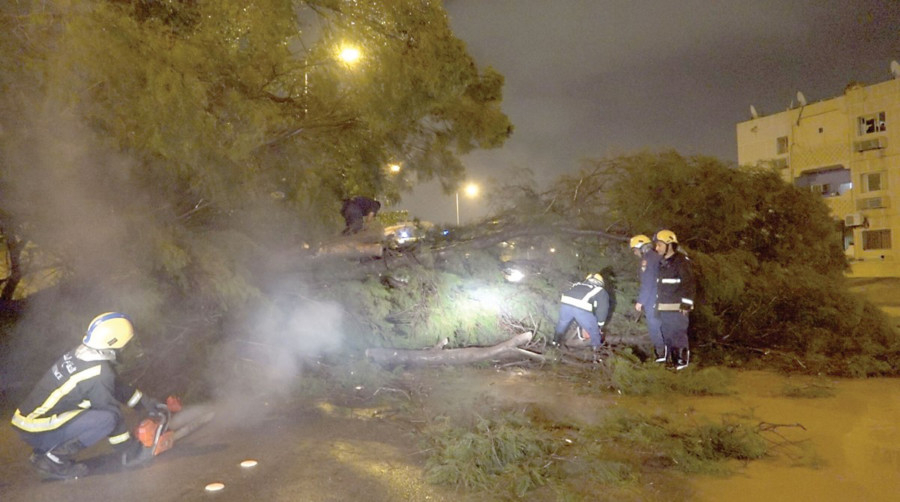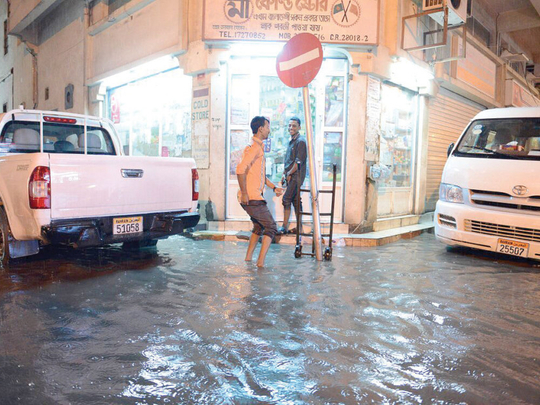
Manama: One of the wettest weeks to hit Bahrain and Saudi Arabia’s Eastern Province in years has generated high water, flooded streets, fallen trees, submerged cars, isolated areas and stalled traffic.
Torrential rain hit the region for one week and, according to weather forecasts, the unusually active wet days are likely to resume following a short reprieve marked by low temperatures.
In Bahrain, Prime Minister Prince Khalifa Bin Salman Al Khalifa on Friday toured several areas across the kingdom to check the impact of the rain on the people and the infrastructure, particularly that the media reported heavy damages.
Orders were issued that damages and shortcomings be addressed immediately to ensure the safety of the people and the smooth procedures of daily work and traffic routines.
Civil Defence officers said that they received hundreds of emergency calls last week and that most callers needed assistance to pull out their sunken cars, drain their streets to help them move around and put out fires caused by damaged transformers.
“Several trees and power polls were toppled and drivers must exercise the highest levels of caution on the road. At home, people need to be careful, especially when they handle electric appliances,” the Civil Defence said in its warning.
Families hit by the rains were invited to file applications to receive compensation following the formation of an ad-hoc committee by the Ministry of Works, Municipality Affairs and Urban Planning to look into the matter.
People can submit their complaints to the three municipal councils in Bahrain, the Capital Trustees Board or directly to the ministry, and must provide details about the damages.
Several people tried to use the lull in the weather conditions to try to fix their cars after pulling them out of the “mini-lakes” that formed during the heavy outpour.
“I hope that I will not have problems with my insurance company as I try to fix my car,” Adel Talha, a professional driver, said. “The problem is that cars are not insured against damages by rain unless it is stipulated in the contract, and I and the other drivers who suffered from the torrential outpour must pay the mechanics to fix our cars.”
Dozens of cars were damaged throughout the week, and mechanics were on Saturday busy trying to get them back on roads ahead of the working week.
“Most of the problems with the cars submerged by the rain waters were related to the engines and the electricity,” Majed Hassan, a mechanic, said.
Official football matches had to be delayed after the fields were found to be too soaked with water to allow a normal play.
In Saudi Arabia, the Governor of Riyadh Faisal Bin Badr Bin Abdul Aziz used a helicopter to assess the impact of the rain and water streams in some areas.
The Governor held meetings with the Civil Defence officials who accompanied to discuss the issue and the steps that needed to be taken to ensure there would be no repeat of the damages.
Social media users had a field day and flooded the platforms with pictures and video clips showing the effect of the rains and winds on roads, buildings and the environment.
However, while officials and people were attempting to control the damages and think of ways to avoid such incidents in the future, young people took to the rain-covered streets and had fun skiing, swimming or rowing small inflatable boats.
Armed with a great sense of humour, they saw the rain as an opportunity to engage in acts they could post on their social media accounts.
“For some people, the rainy season is a great chance to win likes and admirations for the stunts they perform to draw attention,” Abdul Aziz Bu Qais, an office holder, said. “Sometimes, the stunts fun and enjoyable, but at times, they are high risk and we are afraid these people are endangering their lives just for some ephemeral glory on a social media platform.”


